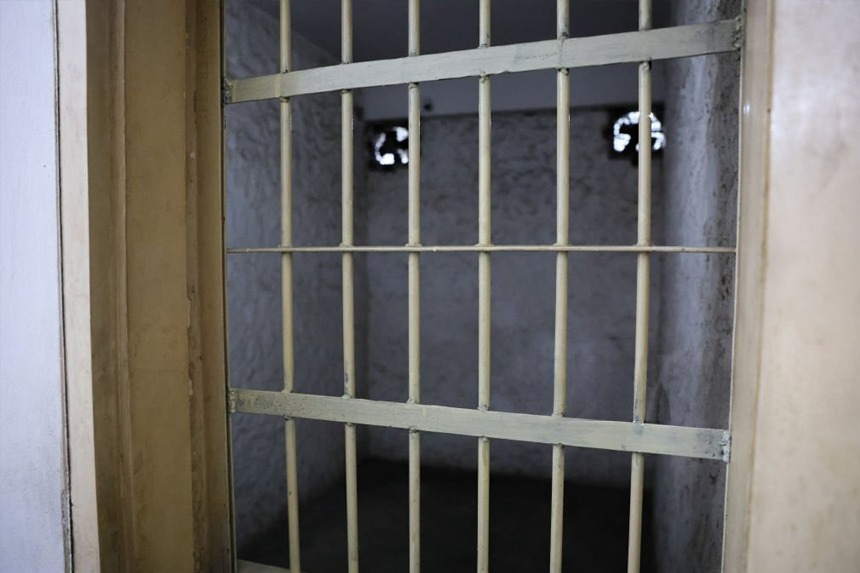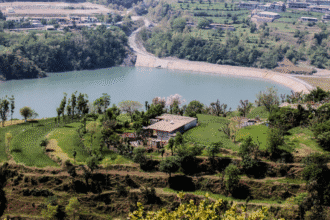Finally revealing years of illegal incarceration, violations of human rights, and an attempt to quiet resistance, the terrible reality of covert detention facilities in Bangladesh has come to light. The voices of survivors calling for justice and reform as the nation negotiates a significant political change help to prevent the same horror from befalling the next generations.
- Where were secret detention centers tucked away close to Dhaka Airport?
- Who ran these covert detention centers, and why were they started?
- Inside Secret Detention Centre: What were the living conditions?
- Are victims' chances for justice and accountability realistic?
- Why Should the World Remain Alert Regarding Practices of Secret Detention?
- In summary, the urgency of reform and justice
Where were secret detention centers tucked away close to Dhaka Airport?
Only the fortitude of survivors who pieced together their experiences made the startling revelation of covert prison facilities in Bangladesh conceivable. Mir Ahmad Bin Quasem is one such survivor who spent eight arduous years in one of these secret prisons close to Dhaka’s International Airport.
Quasem heard planes landing, even though he had been blindfolded for most of his confinement. For researchers, the hint proved quite helpful. It pointed them toward a military base close to the airport, where a freshly cleaned-up wall hid a system of cells meant to eradicate people. Once beyond the barrier, researchers discovered a small corridor leading to pitch-black rooms, each almost wide enough for someone to squat in.
These chambers were devoid of natural light and covered under military security and layers of secrecy. The big building of the facility was a ruse; many captives suffered unimaginably in a smaller, highly secured building adjacent.
Who ran these covert detention centers, and why were they started?
Examining hidden detention facilities in Bangladesh has exposed a startling pattern of forced disappearances and illegal detention carried out by the Rapid Action Battalion (RAB), a counter-terrorism agency once hailed for its effectiveness but now engulfed in claims of severe violations of human rights. How Bad Is the Situation in Bangladesh?
Prosecutors and survivors assert that these detentions were not isolated events but rather part of a concerted, methodical effort aimed at political rivals, reporters, student leaders, and outspoken government critics. Emphasising that evidence directly leads to high-level permissions and strategic planning behind the operations of these detention sites, Tajul Islam, the chief prosecutor for the International Crimes Tribunal, stressed.
Many former prisoners tell shockingly similar stories. Plain clothes or uniformed personnel kidnapped them, blindfolded, handcuffed, and driven to unidentified sites where they were questioned, tortured, and silenced. Many victims, including Atikur Rahman Rasel and Iqbal Chowdhury, reported being threatened into lifelong silence even after their release.
Inside Secret Detention Centre: What were the living conditions?
Inside Bangladesh’s covert detention facilities, life was purposefully meant to destroy the body as much as the spirit. Some survivors find their cages so tightly that even standing up straight is difficult; others describe them as dark, airless, and suffocatingly small. Windows were missing, and the inmates were cut off totally from the outer world.
In the steamy summer, the cages would become actual ovens. Seeking a little breath of air, prisoners sometimes had to stoop toward the breach at the bottom of the door. The walls were mouldy, the floors were discoloured, and occasionally, squatting toilets provided the only break in the otherwise monotonous concrete.
Speaking up to increase awareness, Quasem said the experience was worse than death. Long-lasting trauma caused by absolute sensory deprivation, seclusion, and continuous psychological manipulation still affects survivors as they battle to overcome it.
Are victims' chances for justice and accountability realistic?
Revealing hidden incarceration facilities in Bangladesh has spurred demands for justice, legal action, and genuine responsibility. Though none have been found guilty, prosecutors have named and issued arrest warrants for people connected to these human rights violations.
Along with human rights advocates, survivors feel that their country’s healing and future stability depend on justice; it is not negotiable. Tajul Islam claims that punishing the offenders will discourage further human rights violations and rebuild public confidence in Bangladeshi institutions.
But justice by itself cannot remove the ingrained terror former captives bring with them every day. The experience left with survivors like Rahmatullah and Rasel leaves both emotional and physical wounds. While some have been fighting anxiety and post-traumatic stress, others have claimed to have lost strength in their limbs from electric shock torture.
Why Should the World Remain Alert Regarding Practices of Secret Detention?
The revelation of covert prison facilities in Bangladesh emphasises the worldwide requirement of alertness against state-sponsored human rights abuses and enforced disappearance. Long warning about the risks of unbridled power inside security and intelligence agencies, international human rights organisations have finally found Bangladesh’s case to be a perfect illustration.
Bangladesh’s road ahead calls for more than inquiries and penalties. The nation has to promise openness, uphold the rule of law, and create systems to stop security forces’ abuse of authority. Public awareness, media freedom, and international supervision can help guarantee that these secret cells never resurface to plague future generations.
The bravery of survivors and the relentless work of investigators give optimism that change is still feasible as Bangladesh enters this new chapter of political reform and introspection.
In summary, the urgency of reform and justice
Years of enforced silence are finally being broken by the voices of people kept in secret prison facilities in Bangladesh. Survivors, relatives, and human rights defenders agree that justice cannot wait any longer. Although revealing the truth comes first, the real difficulty is making every offender answerable from the bottom up to the top of the hierarchy of authority.
The nation has a historic chance to choose democracy over tyranny, openness over hiding, and justice over fear. The globe will be watching. The issue now is whether Bangladesh can rise to face this one.








